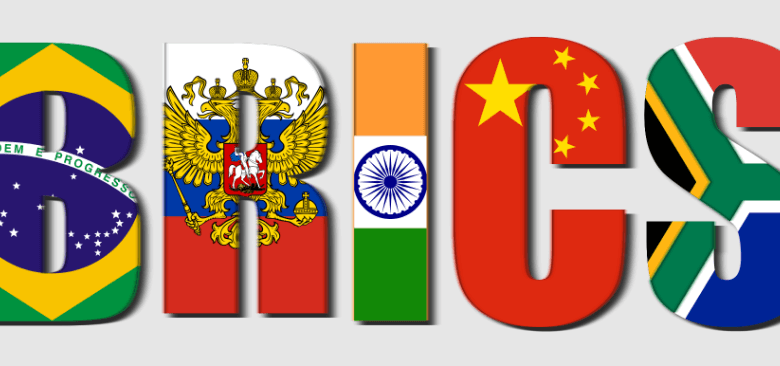Brics Overview: A Comprehensive Guide to the Brics

Understanding the Impact of the BRICS Group on the World
International cooperation and alliances have become crucial for economic stability and political influence in the fast changing global environment of today. BRICS is one such important alliance that has been more well-known in recent years. This page seeks to give readers a thorough overview of BRICS, including its history, goals, and significance on the global scene.
Introduction: What is BRICS?
Brazil, Russia, India, China, and South Africa collectively make up BRICS. A worldwide bloc of developing nations came together to increase their influence globally and tackle shared issues. BRICS, which was founded in 2006, has grown from an acronym to a significant economic and political partnership.
The Origins of BRICS
The concept of BRICS began with the idea of BRIC, which excluded South Africa. Initially, it was an investment strategy term coined by Goldman Sachs in 2001. However, in 2010, South Africa officially joined the group, making it BRICS.
BRICS Objectives
BRICS has several key objectives that shape its actions and policies:
Economic Cooperation: BRICS countries work together to boost trade and investment among themselves. Political Coordination: They collaborate on political matters to address global challenges such as climate change and terrorism. Cultural Exchange: BRICS promotes cultural exchanges to foster better understanding among member nations. Financial cooperation: The New Development Bank (NDB) was founded to offer funding support for infrastructure and sustainable development projects among BRICS countries. Western Influence: By offering an alternative to international institutions that are dominated by the West, BRICS seeks to build a multipolar world.
BRICS and the World Economy
Collectively, the BRICS countries account for a sizable percentage of the global population and GDP. Particularly in recent decades, China and India have seen exceptional economic expansion, which has affected world markets and trade dynamics.
Challenges Faced by BRICS
While BRICS holds enormous potential, it also faces several challenges: Diverse Interests: Member countries have diverse political and economic interests, leading to occasional disagreements. Economic Disparities: Wide economic disparities exist among BRICS nations, affecting their ability to work as a cohesive unit. Global Skepticism: Some critics argue that BRICS lacks a clear agenda and impact on global affairs.
BRICS and Geopolitics
BRICS plays a significant role in shaping geopolitics, especially in international forums like the United Nations. Member nations often coordinate their positions on various global issues.
The BRICS’s future
As BRICS develops more, its future appears bright. It is probably going to continue to be a significant role on the international scene due to economic growth and rising political power.
BRICS: A Geopolitical Influence
The BRICS nations have a substantial geopolitical influence. More than forty per cent of the worldwide population lives in these countries, and over 25 percent of the world’s GDP originates directly from these states’ combined GDP. They are able to affect international policies and decisions thanks to their strong presence, especially in fora like the United Nations. Members of the BRICS can influence the conversation on problems like climate change, sustainable development, and international security by aligning their opinions on major global issues.
Economic Powerhouse
China and India, two of the BRICS group’s largest populations, have become economic powerhouses, with China’s Belt and Road Initiative aiming to improve connectivity and trade. India’s thriving IT sector and rising middle class have made it a significant player in the global services sector, influencing international trade and gaining influence over global banking institutions.
Potential Challenges and Criticisms
While BRICS has undoubtedly made strides in asserting its influence, it is not without its challenges and critics.
Some key concerns include:
- Diverse Interests BRICS members have diverse political and economic interests. For instance, while China and India are major players in manufacturing and services, Russia relies heavily on its energy exports. These varying priorities can sometimes lead to disagreements within the group.
- Economic Disparities Another challenge lies in the significant economic disparities among BRICS nations. The smallest economy in the group, South Africa, with a GDP that is many times smaller than that of China. The bloc’s capacity to cooperate on some matters may be hampered by these differences.
- Global Skepticism Some observers argue that BRICS lacks a clear agenda and meaningful impact on global affairs. Skeptics question whether BRICS can truly provide an alternative to Western-centric global institutions, as it often aims to do.
Conclusion
The BRICS group of nations is a tribute to the strength of developing economies in a world where international collaboration is crucial. There can be no doubt about its influence on world politics and economics.
FAQS
How does BRICS impact global trade? BRICS, with its large economies, has a significant influence on global trade dynamics, particularly in sectors such as manufacturing and technology. Is BRICS a political alliance or just an economic one? BRICS is both a political and economic alliance, as member nations collaborate on political matters in addition to economic cooperation. What challenges does BRICS face in maintaining its unity? BRICS faces challenges related to diverse interests, economic disparities, and global skepticism about its effectiveness. How can other countries engage with BRICS? Other countries can engage with BRICS through diplomatic channels, trade agreements, and participation in BRICS-sponsored initiatives.





